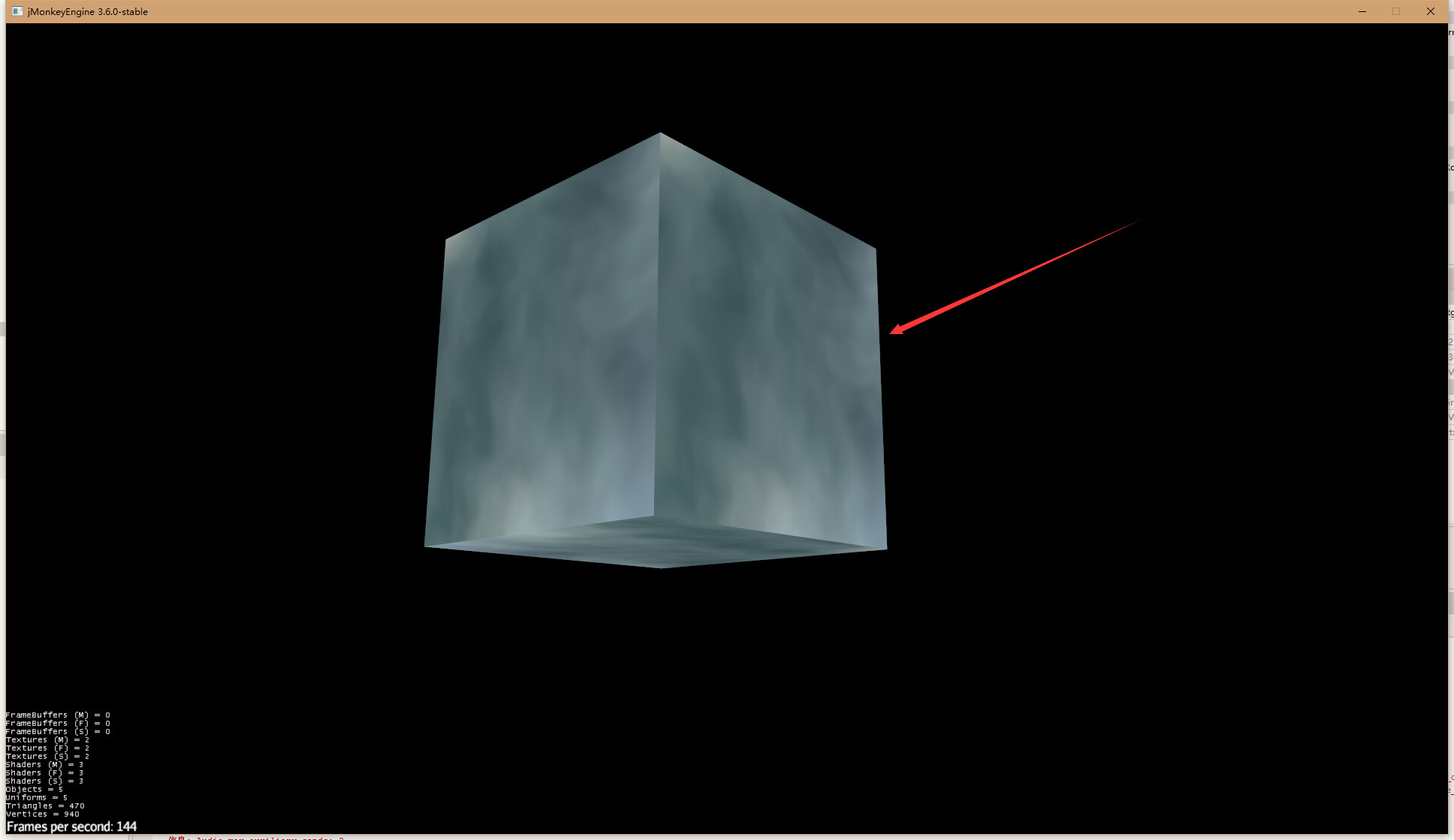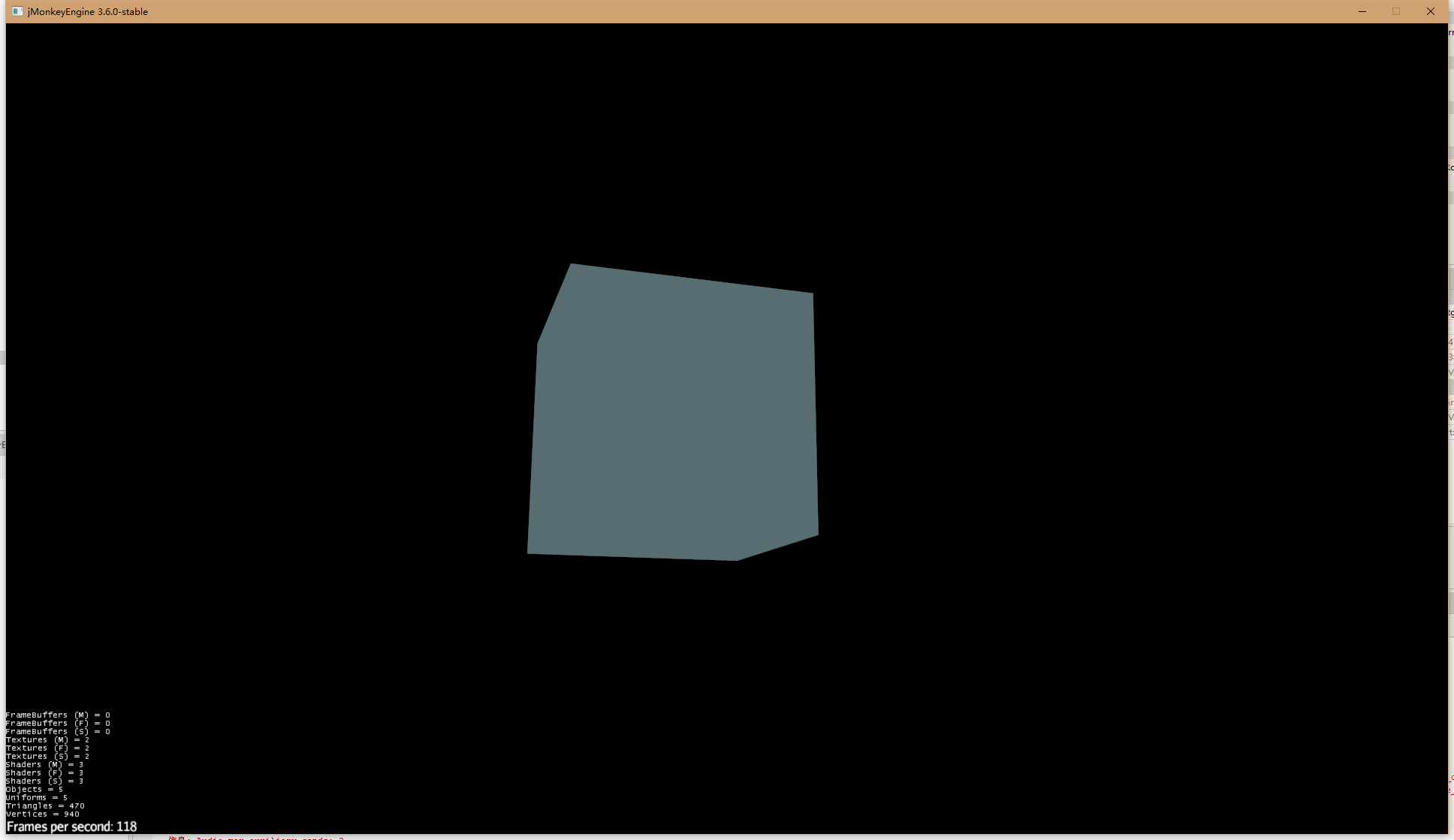And I noticed something rather strange
- This is what GLSL100 looks like
#ifdef GL_ES
precision mediump float;
#endif
uniform vec2 g_Resolution;
uniform vec2 g_Mouse;
uniform float g_Time;
varying vec2 texCoord1;
//out vec4 gl_FragCoord;
//out vec4 fragColor;
float random (in vec2 _st) {
return fract(sin(dot(_st.xy,
vec2(12.9898,78.233)))*
43758.5453123);
}
// Based on Morgan McGuire @morgan3d
// https://www.shadertoy.com/view/4dS3Wd
float noise (in vec2 _st) {
vec2 i = floor(_st);
vec2 f = fract(_st);
// Four corners in 2D of a tile
float a = random(i);
float b = random(i + vec2(1.0, 0.0));
float c = random(i + vec2(0.0, 1.0));
float d = random(i + vec2(1.0, 1.0));
vec2 u = f * f * (3.0 - 2.0 * f);
return mix(a, b, u.x) +
(c - a)* u.y * (1.0 - u.x) +
(d - b) * u.x * u.y;
}
#define NUM_OCTAVES 5
float fbm ( in vec2 _st) {
float v = 0.0;
float a = 0.5;
vec2 shift = vec2(100.0);
// Rotate to reduce axial bias
mat2 rot = mat2(cos(0.5), sin(0.5),
-sin(0.5), cos(0.50));
for (int i = 0; i < NUM_OCTAVES; ++i) {
v += a * noise(_st);
_st = rot * _st * 2.0 + shift;
a *= 0.5;
}
return v;
}
void main() {
vec2 st = texCoord1;
// st += st * abs(sin(g_Time*0.1)*3.0);g_Resolution.xy*3. texCoord1
vec3 color = vec3(0.0);
vec2 q = vec2(0.);
q.x = fbm( st + 0.00*g_Time);
q.y = fbm( st + vec2(1.0));
vec2 r = vec2(0.);
r.x = fbm( st + 1.0*q + vec2(1.7,9.2)+ 0.15*g_Time );
r.y = fbm( st + 1.0*q + vec2(8.3,2.8)+ 0.126*g_Time);
float f = fbm(st+r);
color = mix(vec3(0.101961,0.619608,0.666667),
vec3(0.666667,0.666667,0.498039),
clamp((f*f)*4.0,0.0,1.0));
color = mix(color,
vec3(0,0,0.164706),
clamp(length(q),0.0,1.0));
color = mix(color,
vec3(0.666667,1,1),
clamp(length(r.x),0.0,1.0));
gl_FragColor = vec4((f*f*f+.6*f*f+.5*f)*color,1.);
}
- This is what the GLSL150 shows
#ifdef GL_ES
precision mediump float;
#endif
uniform vec2 g_Resolution;
uniform vec2 g_Mouse;
uniform float g_Time;
out vec2 texCoord1;
//out vec4 gl_FragCoord;
out vec4 fragColor;
float random (in vec2 _st) {
return fract(sin(dot(_st.xy,
vec2(12.9898,78.233)))*
43758.5453123);
}
// Based on Morgan McGuire @morgan3d
// https://www.shadertoy.com/view/4dS3Wd
float noise (in vec2 _st) {
vec2 i = floor(_st);
vec2 f = fract(_st);
// Four corners in 2D of a tile
float a = random(i);
float b = random(i + vec2(1.0, 0.0));
float c = random(i + vec2(0.0, 1.0));
float d = random(i + vec2(1.0, 1.0));
vec2 u = f * f * (3.0 - 2.0 * f);
return mix(a, b, u.x) +
(c - a)* u.y * (1.0 - u.x) +
(d - b) * u.x * u.y;
}
#define NUM_OCTAVES 5
float fbm ( in vec2 _st) {
float v = 0.0;
float a = 0.5;
vec2 shift = vec2(100.0);
// Rotate to reduce axial bias
mat2 rot = mat2(cos(0.5), sin(0.5),
-sin(0.5), cos(0.50));
for (int i = 0; i < NUM_OCTAVES; ++i) {
v += a * noise(_st);
_st = rot * _st * 2.0 + shift;
a *= 0.5;
}
return v;
}
void main() {
vec2 st = texCoord1;
// st += st * abs(sin(g_Time*0.1)*3.0);g_Resolution.xy*3. texCoord1
vec3 color = vec3(0.0);
vec2 q = vec2(0.);
q.x = fbm( st + 0.00*g_Time);
q.y = fbm( st + vec2(1.0));
vec2 r = vec2(0.);
r.x = fbm( st + 1.0*q + vec2(1.7,9.2)+ 0.15*g_Time );
r.y = fbm( st + 1.0*q + vec2(8.3,2.8)+ 0.126*g_Time);
float f = fbm(st+r);
color = mix(vec3(0.101961,0.619608,0.666667),
vec3(0.666667,0.666667,0.498039),
clamp((f*f)*4.0,0.0,1.0));
color = mix(color,
vec3(0,0,0.164706),
clamp(length(q),0.0,1.0));
color = mix(color,
vec3(0.666667,1,1),
clamp(length(r.x),0.0,1.0));
fragColor = vec4((f*f*f+.6*f*f+.5*f)*color,1.);
}
GLSL100 shows the expected content, while GLSL150 shows the unintended content in solid color only

